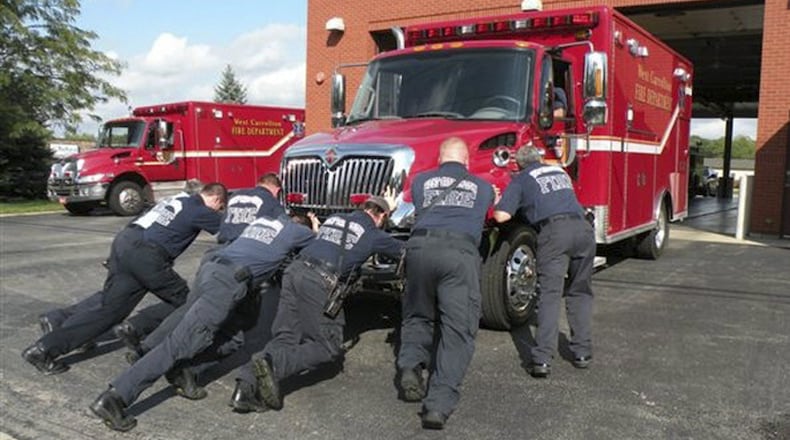West Carrollton’s fire service model has for decades relied largely on part-time firefighters. This has led to brownouts at both fire stations in the past year, including shutting down Station 57 for 24 total hours in October, records show.
EARLIER: Entertainment district property part of land bank plan with county
Shortages in October also caused shutdowns of both medic units, with No. 56 out of service for 53 hours and No. 57 down for 24 hours, according to city records.
“We’re not alone in this,” West Carrollton City Manager Brad Townsend told city council Tuesday night. “Everyone is having an issue when it comes to part-time fire folks. It’s been well-documented by other jurisdictions. So it’s time for us” to put a levy before voters.
Council voted 6-0 to approve the ballot issue for the March 17 primary. If approved, the levy would increase taxes for owners of homes valued at $100,000 about $136 a year, Townsend said.
POPULAR: New Austin Landing owners look to stabilize $134.5M business, entertainment complex
A levy would help the city avoid dipping further into its reserve fund, which it did this year in an effort to curb brownouts, he said.
City officials had talked about putting a 3.5-mill emergency services levy on the spring ballot. But Townsend said that amount would not be enough to fund more staff and avoid brownouts, records show.
Brownouts at both of the city’s fire stations occurred 11 times in September, city records show. Station 57 was browned out for 36 hours, as was Medic 57, while Medic 56 was out for 96 hours, according to the city.
The higher millage would generate about $640,000 more a year and “help us retain the two full-time people we added this year,” Townsend has said, “plus add four full-time firefighter/paramedics and also increase the salary pool.”
RELATED: Wright State helping city survey residents for first time since 2015
Maintaining a reserve fund of 25 percent of the city’s general fund is a common goal, Townsend said. The 2020 general fund is projected at $8.6 million and the reserve balance at $1.9 million, he said.
A survey conducted by Wright State University earlier this year showed that more than 52 percent of respondents would favor approving a property tax hike in the range of $100 to $125 a year.
When the property tax hike range was increased to $125 to $150 a year, 42 percent said they were likely to support while 49.3 percent said they were unlikely, according to the results.
More than 86 of those responding to the survey said they owned homes, according to Wright State.
RELATED: City adding full-time firefighters to rescue it from station brownouts
About the Author

